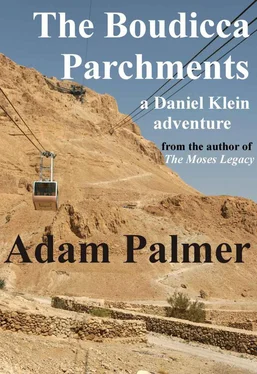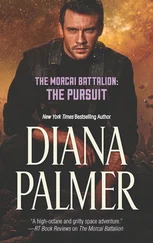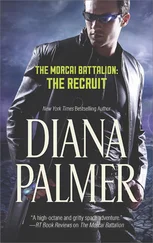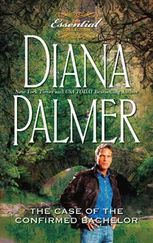Adam Palmer - The Boudicca Parchments
Здесь есть возможность читать онлайн «Adam Palmer - The Boudicca Parchments» весь текст электронной книги совершенно бесплатно (целиком полную версию без сокращений). В некоторых случаях можно слушать аудио, скачать через торрент в формате fb2 и присутствует краткое содержание. Жанр: Прочие приключения, на английском языке. Описание произведения, (предисловие) а так же отзывы посетителей доступны на портале библиотеки ЛибКат.
- Название:The Boudicca Parchments
- Автор:
- Жанр:
- Год:неизвестен
- ISBN:нет данных
- Рейтинг книги:3 / 5. Голосов: 1
-
Избранное:Добавить в избранное
- Отзывы:
-
Ваша оценка:
- 60
- 1
- 2
- 3
- 4
- 5
The Boudicca Parchments: краткое содержание, описание и аннотация
Предлагаем к чтению аннотацию, описание, краткое содержание или предисловие (зависит от того, что написал сам автор книги «The Boudicca Parchments»). Если вы не нашли необходимую информацию о книге — напишите в комментариях, мы постараемся отыскать её.
The Boudicca Parchments — читать онлайн бесплатно полную книгу (весь текст) целиком
Ниже представлен текст книги, разбитый по страницам. Система сохранения места последней прочитанной страницы, позволяет с удобством читать онлайн бесплатно книгу «The Boudicca Parchments», без необходимости каждый раз заново искать на чём Вы остановились. Поставьте закладку, и сможете в любой момент перейти на страницу, на которой закончили чтение.
Интервал:
Закладка:
Martin Costa wasn’t officially working on the dig. A man with his reputation wouldn’t have been allowed anywhere near a site like this. However, word of the dig and the preliminary survey had got back to him. And it had aroused his venal interest. He knew that he wasn’t going to find any gold or silver here. But gold and silver were for amateurs. The real money was to be made from historic artefacts that didn’t qualify as treasure trove and belong to the “Crown” under silly archaic laws. Artefacts of bronze, wood and leather wouldn’t attract as much attention from law enforcement as precious metal and he knew plenty of private collectors who would pay good money for them. Indeed non-metallic artefacts of wood and leather were a lot more interesting to collectors. The fact that they were biodegradable meant that they were unlikely — a priori — to survive the ravages of time and therefore all the more rare and valuable when they did survive.
So now, an hour before midnight, Costa proceeded up and down the site, with this strange looking contraption, in the hope of finding something — anything — of value that might add to his fleeting fortunes. Fleeting, because Martin Costa was the kind of man who couldn’t hold onto money for long.
His job was all the harder, because the site had already been partitioned into one metre squares by a grid of string, held in place by long iron nails. These nails disrupted the readings from the gradiometer. However, he persevered and when he found something interesting he took out his shovel and attacked the topsoil ruthlessly, regardless of the risk of his activities being found out later. He had no intention of returning the topsoil or indeed the clay or peat underneath. If he found something of value, he would be long gone by then.
And now he had found something. It was buried quite deep — nearly two metres — but he had been determined to get at it. The reading showed that it was small, but not all that small. About a foot or so in length. He dug more carefully now, with a small spade, and when the spade finally hit something hard and he heard that feint quasi-metallic “clink,” his heart leapt. But it fell again when he dug away the last of the dirt with his bare hands to discover a clay jar sealed with a large cork. The cork had been pushed in hard and was wedged deep. When he tried to pull it out, it held firm and he feared that if he pulled any harder, the jar would shatter.
But the find looked tantalizingly interesting. One might often find ostraca , shards of pottery, sometimes with writing on them. These were believed to have been used in ancient times for ballots or the allocation of food. Others were just broken pieces of vases, jugs and jars. But in this case it was an entire large jar, in one unbroken piece, and that was an extraordinary find. Completely unbroken pottery vessels were rare: there was nearly always some small piece broken off. And the ones that survived substantially intact were usually the large ones because they were also thicker and thus less likely to break.
This one was quite tall — slightly less than the twelve inches he had estimated from the readings. And not only was it in one piece, but it was actually sealed by that cork lid — about three inches across — that was wedged in so tight, he was finding it hard to open. In a moment of childish fantasy, he idly wondered if there was a genie inside. It was an amusing thought, but one that the hard-headed Martin Costa quickly dismissed. Still, it was funny — and humour was always a good relief from stress. Here he was in the moonlight, struggling to prise a cork out of a clay jar, wondering what, if anything, was inside.
If there was anything inside it wasn’t very heavy. The jar weighed pretty much what Costa expected it to weigh if empty. And the chances were that it probably was. When he shook it gently, he heard nothing. He did wonder why an empty jar would be sealed at all, let alone as tightly as this. But he doubted that he would ever find out. Probably, the lid had simply been placed there lightly and had become wedged tighter over the course of time through pressure and movement of the ground. This was a late bronze age site after all. And even if it had also been the site of Romano-Britain’s most famous battle — as some of the archaeologists on the team from Cambridge believed — that still allowed almost two thousand years for the ravages of time to take its toll on the vase, the cork lid and indeed the contents — if there were any.
But still he wanted it open. He had to know .
Prizing it out was not an option, because he didn’t have long nails. Then he remembered reading somewhere that sustained force operates cumulatively. If you try to open a tightly-closed jar by starting and stopping, you get nowhere. But if you apply constant pressure it eventually gives, even if nothing appears to be happening. However, that applied chiefly to a modern type jar with a thread.
In this case, the problem was that it was very hard to get any proper grip on the cork because it was not just wide and shallow, but also damp. He wondered just how damp. He knew that Great Britain was slowly tilting — the north and west rising, the south east sinking. So when this jar was buried — if it was buried rather than merely discarded — it was above the water table. Even when he found it, there had been no groundwater present at that depth. But the water table varies with the spring and neap tides and that — combined with the geological sinking — might have put this jar beneath the water table, at least part of the time. Even if not, the descent of rain might account for the dampness. If this jar had been an iron object it would surely have rusted badly. As it was, he wondered if water had permeated the cork or the clay itself.
Unable to get any sort of sustained manual purchase on the cork lid, he resorted to the expedient of twisting it in short bursts, first one way and then the other. It didn’t appear to be moving, but he reasoned that firm pressure, applied repeatedly, might eventually take its toll.
And finally it did.
With growing excitement, he felt the cork giving way and loosening slightly and finally turning. Then, with a final effort, he turned it, prised carefully and lifted. The cork came off in his hand to reveal the open jar. But with little more than moonlight to guide him, he could barely see the contents. He reached into his pocket and pulled out a small “flashlight” as he sometimes called it.
Torch , his mind corrected. I’ve been hanging out with Americans too long!
And then he saw something that amazed him. Inside the jar was what looked like some sort of jute fabric. Realizing that he needed a solid surface to work on, he sprinted with the jar to the hut that served as the office or the dig. It was locked with a heavy padlock, but the metal plates screwed to the wooden wall and door were so flimsy that the door yielded to his foot.
Inside the hut, he carefully removed the jute fabric, by pulling it very gently. It became clear to him that this was a bag, or at least the disintegrating remnants of one. But what was of more interest was what was inside that. It appeared to be some more fabric, but this time leather. And this was somewhat better preserved. He placed it on the desk and switched on the desk lamp. Then he carefully and gingerly unrolled the leather, using two pairs of tweezers to minimize his direct contact with it. And at that point he got a surprise .
For what seemed to be rolled up with it, was a piece of old thick paper.
Is that it? Some old rolled up pieces of paper from modern times?
They certainly didn’t have paper in the days of Roman Britain!
Читать дальшеИнтервал:
Закладка:
Похожие книги на «The Boudicca Parchments»
Представляем Вашему вниманию похожие книги на «The Boudicca Parchments» списком для выбора. Мы отобрали схожую по названию и смыслу литературу в надежде предоставить читателям больше вариантов отыскать новые, интересные, ещё непрочитанные произведения.
Обсуждение, отзывы о книге «The Boudicca Parchments» и просто собственные мнения читателей. Оставьте ваши комментарии, напишите, что Вы думаете о произведении, его смысле или главных героях. Укажите что конкретно понравилось, а что нет, и почему Вы так считаете.












